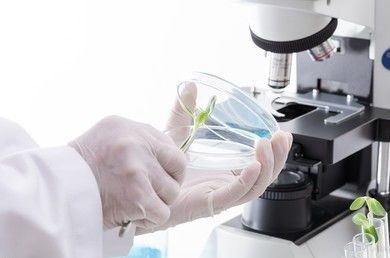Microbiological Limit Test for Herbal Medicines
Inquiry
The microbial limit test is an essential element of the quality testing program for herbal preparations and is used to check the degree of microbial contamination of herbal materials and herbal drinks and preparations. As herbal preparations are compound preparations containing various ingredients, the strength of inhibition of herbs with antibacterial activity may vary, and the methods used for antibacterial activity may also vary.

The wide variety of herbal preparations and tablets from a wide range of sources carry their micro-organisms, which when improperly processed, can easily lead to microbial multiplication, pathogenic bacterial load, and toxin accumulation, which can seriously affect the quality and safety of medicines. To address this situation, Lifeasible offers a wide range of samples, including microbial counts and control bacteria, for herbal materials, herbal tablets, and preparations.
- Microbial counts include total aerobic microbial count, total yeast and mold count, and heat-resistant bacteria count.
- Control bacteria checks include Bile salts tolerance of Gram-negative bacteria, Escherichia coli (E. coli), and Salmonella.
Checking class
- Methods of examination of herbal preparations without antibacterial ingredients. Microbiological limit checks and control bacteria checks of samples are carried out by conventional methods.
- For herbal preparations with inhibition, the results of the microbiological limit check by conventional methods do not give a true picture of the contaminating microorganisms in the medicine due to the interference of the inhibition activity. For this reason, we use appropriate methods such as media dilution, membrane filtration, centrifugal precipitation, or neutralization to eliminate the inhibitory activity of the test solution before conducting the drug test. At the same time, the test method we use is also validated to confirm the inhibition activity of the test article and to ensure the reliability of the assay, thus improving the detection rate of contaminated microorganisms in the drug itself.
- Methods for the examination of herbal preparations with and without bacteriostatic components. In general, herbal preparations contain more complex components; some herbal preparations have no inhibitory effect on some bacteria, while others have an inhibitory effect on some bacteria. For the former, we use the conventional method for microbiological limits. In the latter case, we apply media dilution, membrane filtration, centrifugal precipitation, or neutralization to eliminate the inhibitory activity of the test solution and then carry out the microbiological limit check according to the conventional method.
Identification methods
- Quantitative determination. Generally, by the petri dish counting method.
- Rapid test piece. Improves detection efficiency.
- Adenosine triphosphoric acid (ATP) luminescence method. Much shorter detection time.
- Immunomagnetic bead isolation technique. It plays an active role in enriching and isolating pathogenic bacteria, reducing background interference and improving detection sensitivity.
- PCR assay. Aids in pathogen validation, typing, and virulence gene determination.
Applications
- Knowledge of the number, species, and frequency of detection of herbal microorganisms from different attributes (e.g., herbal base material, harvesting site, etc.), other geographical sources, and various processing stages can help rationalize the development of herbal microbial limit criteria.
- By choosing the appropriate and advanced technology we offer for the rapid detection and accurate identification of harmful microorganisms in herbs and their processing, pharmaceutical risks can be assessed, sources of contamination traced, and control measures taken promptly.
Microbiological limit tests are methods for checking the level of microbial contamination of non-prescribed sterilized preparations, their raw materials, and excipients. Lifeasible will provide you with accurate results by selecting viable, effective, and easy-to-use, fast methods for microbial counting and control bacteria checks of herbal preparations based on the characteristics of the samples themselves. Please feel free to contact us to submit your testing requirements and start your project as soon as possible.
For research or industrial raw materials, not for personal medical use!
Related Services

